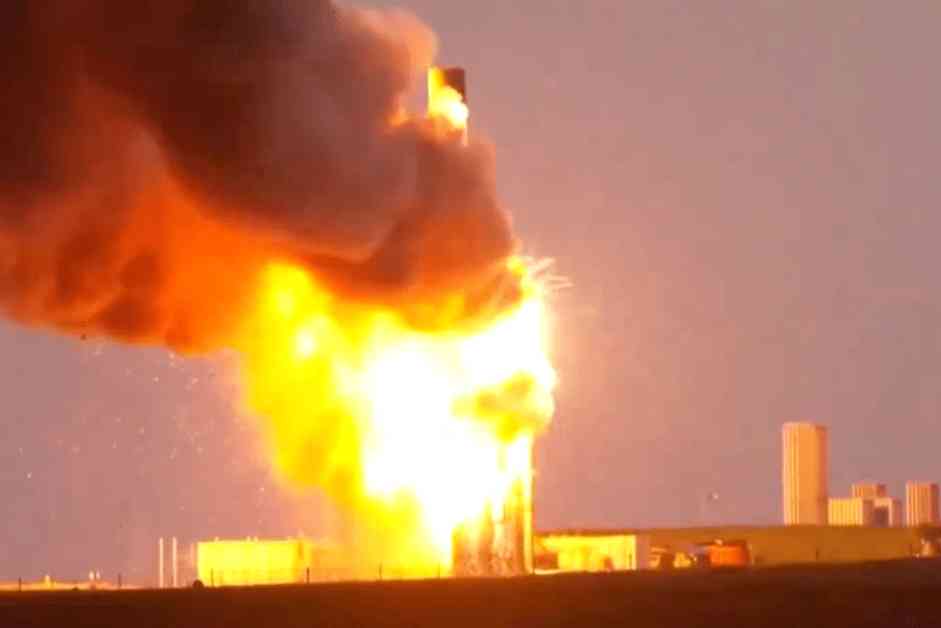Unfortunately, a rocket explosion at the UK Spaceport in Shetland has caused a significant setback for Rocket Factory Augsburg (RFA), a German company aiming to conduct the first vertical satellite launch from European soil. The explosion, which occurred during a test at the privately-owned SaxaVord Spaceport on Unst, has been attributed to a “very unusual” oxygen fire in a turbopump. While no injuries were reported, the incident has destroyed the first stage of the RFA One rocket, requiring a replacement to be brought from Germany. This unexpected development has forced RFA to postpone their launch plans indefinitely, as launching in the coming weeks or months is no longer feasible.
Identifying the Cause of the Explosion
Engineers investigating the rocket explosion at the UK Spaceport in Shetland have determined that the root cause of the blast was a “very unusual” oxygen fire in a turbopump. The explosion occurred during a test at the SaxaVord Spaceport on Unst, delaying RFA’s ambitious plans for the first vertical satellite launch from European soil. The company stated that the blast has rendered launching in the near future impossible, as the first stage of the RFA One rocket was completely destroyed in the incident. This unexpected setback has highlighted the complexities and risks associated with space exploration and rocket technology.
Challenges Faced by Rocket Factory Augsburg
The explosion at the UK Spaceport has presented numerous challenges for Rocket Factory Augsburg (RFA) and its efforts to conduct the first vertical satellite launch from European soil. The destruction of the first stage of the RFA One rocket has forced the company to rethink its launch timeline and logistics. With a replacement stage needing to be brought from Germany, RFA’s plans for launching in the coming weeks or months have been put on hold indefinitely. The company’s spokesperson emphasized the severity of the anomaly that led to the explosion, citing a fire in the oxygen pump as the primary culprit. Despite the setback, RFA remains confident in the soundness of their engine design and infrastructure, expressing a commitment to learn from the incident and move forward with their preparations for future launch attempts.
Lessons Learned from the Incident
The rocket explosion at the UK Spaceport in Shetland has served as a sobering reminder of the inherent risks and challenges associated with space exploration and rocket technology. The incident, caused by a “very unusual” oxygen fire in a turbopump, has highlighted the importance of thorough testing and safety protocols in the development and launch of rockets. While no injuries were reported during the explosion, the destruction of the first stage of the RFA One rocket has underscored the need for meticulous attention to detail and rigorous risk assessment in the aerospace industry. As Rocket Factory Augsburg (RFA) works to recover from this setback and resume their launch efforts, the incident serves as a valuable learning experience for all stakeholders involved in the quest for space exploration.
Moving Forward After the Setback
In the aftermath of the rocket explosion at the UK Spaceport in Shetland, Rocket Factory Augsburg (RFA) faces the daunting task of regrouping and reassessing their launch plans. The company’s spokesperson acknowledged the challenges ahead, stating that launching in the near future is no longer feasible due to the destruction of the first stage of the RFA One rocket. With a replacement stage needing to be sourced from Germany, RFA must recalibrate their timeline and resources to move forward with their aspirations of conducting the first vertical satellite launch from European soil. Despite the setback, RFA remains committed to their mission and is determined to learn from the incident to ensure the safety and success of future launch attempts.
Support and Collaboration in the Aerospace Industry
The rocket explosion at the UK Spaceport in Shetland has prompted expressions of support and collaboration within the aerospace industry. Rocket Factory Augsburg (RFA) has received assurances from the SaxaVord Spaceport that they will work together to understand the causes of the incident and provide support as RFA moves forward with their launch preparations. The incident has also highlighted the interconnected nature of the space sector, with other companies like HyImpulse and ABL Space Systems also planning orbital satellite launches from the UK. As the industry navigates the challenges and setbacks inherent in space exploration, collaboration and shared learning will be key to advancing the frontiers of space technology and achieving successful satellite launches from European soil.
Innovations and Challenges in Rocket Technology
The rocket explosion at the UK Spaceport in Shetland has shed light on the complexities and challenges inherent in rocket technology. The incident, caused by a “very unusual” oxygen fire in a turbopump, has underscored the need for rigorous testing and safety protocols in the design and launch of rockets. While failures on new rocket designs are not uncommon, the incident serves as a stark reminder of the risks involved in space exploration and the importance of continuous innovation and improvement in rocket technology. As companies like Rocket Factory Augsburg (RFA) strive to push the boundaries of space exploration, they must navigate the delicate balance between technological advancement and safety to ensure the success of future launch attempts from the UK Spaceport.
Conclusion
The rocket explosion at the UK Spaceport in Shetland has caused a significant setback for Rocket Factory Augsburg (RFA) and its ambitions to conduct the first vertical satellite launch from European soil. The incident, caused by a “very unusual” oxygen fire in a turbopump, has highlighted the risks and challenges inherent in rocket technology and space exploration. As RFA works to recover from this setback and regroup for future launch attempts, the incident serves as a valuable learning experience for the aerospace industry as a whole. Collaboration, innovation, and a commitment to safety will be essential as companies continue to push the boundaries of space exploration and strive for successful satellite launches from European soil.












